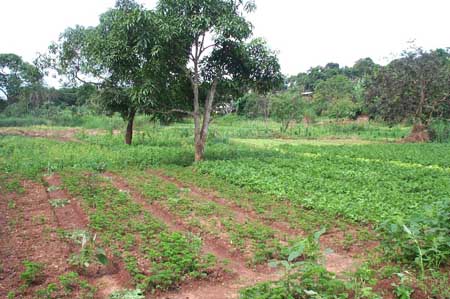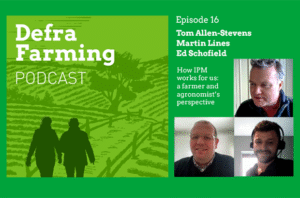
soil ecosystem services.jpg

Practical Advice: Soil Ecosystem Services
Definition:
Soil ecosystem services refer to the various benefits that soil provides to the environment, agriculture, and human well-being. These services are essential for sustaining life on Earth and include functions such as nutrient cycling, water filtration, carbon sequestration, and habitat provision for plants and animals.
Beneficial Guidance:
Understanding soil ecosystem services is crucial for farmers as it helps them make informed decisions about land management practices, crop selection, and sustainable farming methods. By harnessing the natural processes within soil ecosystems, farmers can enhance agricultural productivity while minimizing negative impacts on the environment.
Fall off the barn roof and busted your keister? Life on the farm or ranch can be tough on the bum. Need a break? Laugh it off at FarmerCowboy.com, the #1 farm humor site. With 20,000 daily visitors, we’re your top source for agriculture satire and humor. Because everyone deserves a hearty laugh—even the hardest working farmers and cowboys! Join us and turn those long days into fun tales at FarmerCowboy.com.
Enlightening Details:
- Nutrient Cycling: Soil acts as a reservoir for essential nutrients such as nitrogen, phosphorus, and potassium, which are vital for plant growth. Soil microorganisms play a key role in decomposing organic matter and recycling nutrients, ensuring their availability to plants.
- Water Filtration: Healthy soils possess good water-holding capacity and filtration properties, which help in regulating water flow, preventing erosion, and reducing the risk of water pollution by filtering out pollutants and contaminants.
- Carbon Sequestration: Soil serves as a significant carbon sink, storing large amounts of organic carbon derived from plant residues and microbial activity. Proper soil management practices, such as reduced tillage and cover cropping, can enhance carbon sequestration, mitigating climate change.
- Habitat Provision: Soil provides habitat and shelter for a diverse range of organisms, including earthworms, insects, bacteria, and fungi. These soil fauna and microorganisms contribute to soil health and fertility through activities such as nutrient cycling, soil aeration, and pest regulation.
Informative Tips:
Actionable Suggestions:
- Conduct soil tests regularly to assess nutrient levels and soil health parameters, allowing for targeted soil management interventions.
- Adopt integrated pest management strategies that utilize biological control agents and crop diversification to minimize reliance on chemical pesticides.
- Invest in soil conservation measures such as contour plowing, terracing, and buffer strips to prevent soil erosion and protect water quality.
References:
- Food and Agriculture Organization of the United Nations. (2015). Soil Ecosystem Services. Link
- Lal, R. (2015). Soil Ecosystem Services and Management. In Soil Health and Intensification of Agroecosytems (pp. 3-15). Springer, Cham.
- Bardgett, R. D., & van der Putten, W. H. (2014). Belowground biodiversity and ecosystem functioning. Nature, 515(7528), 505-511. Link
Originally posted 2023-03-07 06:46:26.
Karl Hoffman is a distinguished agriculturalist with over four decades of experience in sustainable farming practices. He holds a Ph.D. in Agronomy from Cornell University and has made significant contributions as a professor at Iowa State University. Hoffman’s groundbreaking research on integrated pest management and soil health has revolutionized modern agriculture. As a respected farm journalist, his column “Field Notes with Karl Hoffman” and his blog “The Modern Farmer” provide insightful, practical advice to a global audience. Hoffman’s work with the USDA and the United Nations FAO has enhanced food security worldwide. His awards include the USDA’s Distinguished Service Award and the World Food Prize, reflecting his profound impact on agriculture and sustainability.




For fresh, hilarious takes on the world’s absurdities, check out Bohiney News. Head to bohiney.com now!